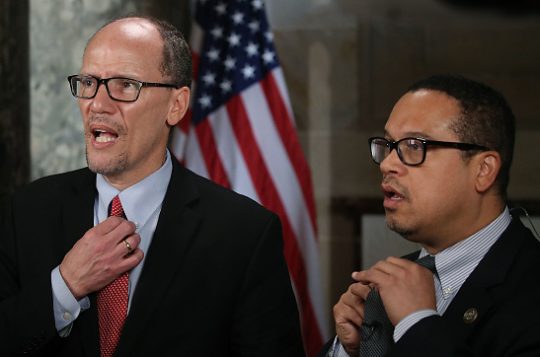The Democratic National Committee announced Thursday it would be spending $2.5 million on a plan to motivate nonwhite voters, but critics questioned whether that figure reflects a genuine commitment.
The New York Times first reported the details of the outreach plan, saying it is "likely the largest and most comprehensive effort ever by the Democratic Party to motivate minority voters in a midterm election year." But in the 2010 midterms, the Democrats claimed to spend $3 million on advertising that targeted black voters, while critics were quick to say $2.5 million is a relatively small nationwide investment.
Huffington Post senior reporter Kevin Robillard tweeted the article saying, "this is … not a lot of money?"
"This effort, by the DNC, is less than some campaigns spend on a single House campaign," National Journal reporter Josh Kraushaar said.
Vice News reporter Alex Thompson pointed to the DNC’s 2010 spending and said, "Different year, same press release."
This comes after the Democratic Party has taken flak for misleading statements about its investment in voter outreach efforts. Earlier this year, McClatchy exposed the DNC’s falsity in claiming that it spent $1 million for Doug Jones Senate candidacy in Alabama when the number was actually about $250,000. Jones won a narrow victory thanks in part to significant black turnout.
DNC chairman Tom Perez also touted a $10 million investment to rebuild state parties last year, but it took seven months for any dollars to make it into state-party coffers outside of Washington state. Part of the problem appeared to be DNC fundraising woes, since reports showed they had little cash on hand, especially compared to their Republican counterparts.
Some reports indicate Perez has more work to do to build the DNC’s credibility with state parties and minority voters in general. The DNC has drawn criticism for failing to focus on their concerns or to hire a large percentage of minority-owned businesses.
